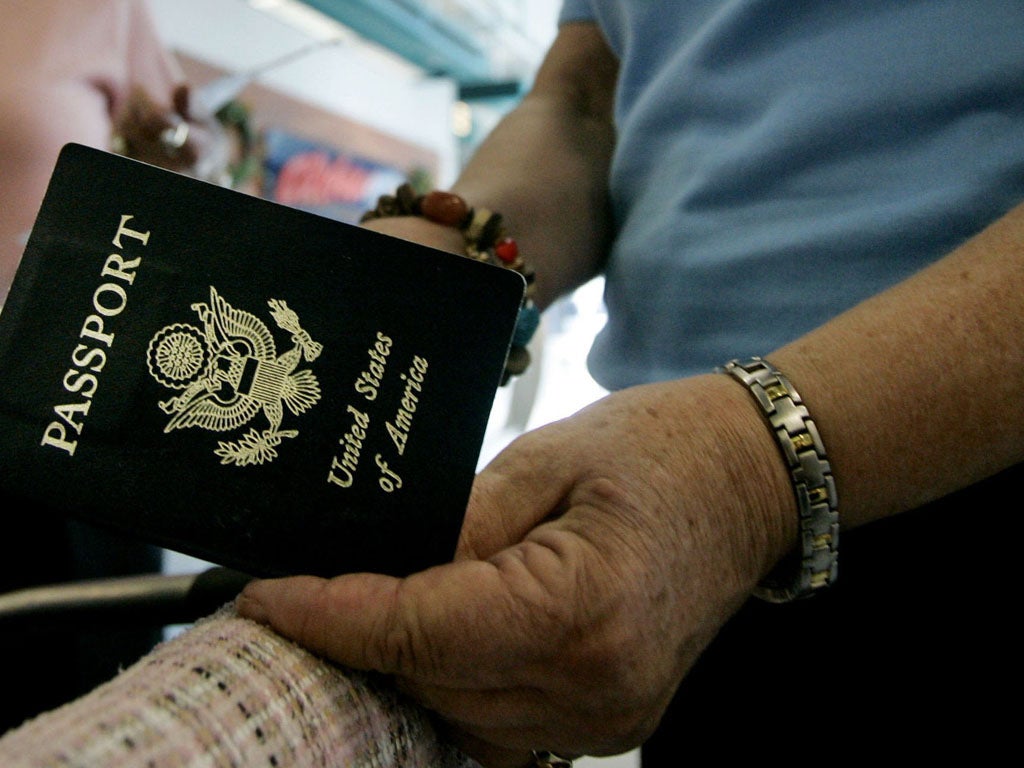Despite the economic misery of the last five years, Europe remains a success story…as Malta’s passport sale clearly demonstrates
Now the target is human capital – clever, talented and rich people


Your support helps us to tell the story
From reproductive rights to climate change to Big Tech, The Independent is on the ground when the story is developing. Whether it's investigating the financials of Elon Musk's pro-Trump PAC or producing our latest documentary, 'The A Word', which shines a light on the American women fighting for reproductive rights, we know how important it is to parse out the facts from the messaging.
At such a critical moment in US history, we need reporters on the ground. Your donation allows us to keep sending journalists to speak to both sides of the story.
The Independent is trusted by Americans across the entire political spectrum. And unlike many other quality news outlets, we choose not to lock Americans out of our reporting and analysis with paywalls. We believe quality journalism should be available to everyone, paid for by those who can afford it.
Your support makes all the difference.There are several ways that a non-EU citizen can gain an EU passport. One is for your country to join the EU, as Croatia did in July and as many people in the Ukraine would like it to do. Another is to brave the arduous crossing of the Mediterranean and hope eventually to achieve political asylum. And another is to sign a cheque.
The plan by Malta to offer citizenship for €650,000 is not a new idea. Cyprus offers a passport for €3m and we in Britain have a process where people investing upwards of £1m eventually qualify for indefinite leave to remain, which in turn leads to citizenship. Other EU countries have other procedures for giving citizenship to people they want to attract.
But the Malta plan, launched last month by the new government, is more explicit than anything yet. You will be vetted, but apparently it should be a simple enough process. The Prime Minister, Joseph Muscat, says that the plan is expected to attract “high value” individuals who will invest in the island. It is estimated that the deal will attract up to 300 people a year, and while the initial passport is just for one person, he or she can buy additional citizenship for their family at €25,000 a pop. Holders have full EU rights and can travel and work in any of the 27 member countries.
This may all seem a bit mercenary and in a way it is. But it reflects several realities of our modern world.
The first, and this should be celebrated, is that an EU passport is arguably the best one to have in the world. The British version of this is marginally better than some of the others because it gives slightly wider visa-free travel, and Swiss and Norwegian ones are good too. A US passport, by contrast, is not so useful, for two reasons. One is that a number of countries impose tit-for-tat visa requirements in response to US border controls. The other, increasingly important, is that US tax and reporting requirements are particularly onerous for US residents abroad. It is still only a trickle, but the number of US citizens handing back passports has risen sharply in the past three years.
The second is that countries are now seeking to attract human capital as much as physical and financial capital. A generation ago countries vied with each other to attract foreign companies to build manufacturing plants, often giving grants for them to do so. Since then the focus has shifted to more general financial incentives, which has created a world where a company such as Google or Amazon pays little corporation tax anywhere. Ireland has been particularly successful in this regard.
Now the target is human capital – clever, talented and rich people – for we have managed to create a world where companies and money can shift across national borders at the speed of light, but where there remain quite substantial barriers to human mobility. By and large, places that are difficult for citizens of the developed world to work in are places which we would not terribly want to go. For people less lucky in the location of their birth, the world is not a single global entity at all, for access to huge swathes of the planet is heavily restricted. We see the world from our privileged perch; it looks very different from the other side.
Many people will feel uncomfortable with the idea that citizenship should be a commodity, for sale just like any other. David Hanson, the shadow immigration minister, says he has “serious concerns” about the Maltese proposal.
“This risks being a back-door route to reside anywhere in the EU which is not a tight or appropriate immigration policy,” he told the Financial Times. It does however have the advantage of clarity. Indeed it is a front-door legal route to citizenship rather than the present system which is capricious, and despite all efforts to the contrary, quite arbitrary. It also forces Europe to confront some difficult and painful questions. For example, what sort of person does it want to attract and what sort of person does it not want? And who do we want to welcome and who would we prefer stayed away?
In the eyes of many in the rest of the world Europe is a success story. Amid all the current economic misery in the southern part of the continent, that is something to remember.
Join our commenting forum
Join thought-provoking conversations, follow other Independent readers and see their replies
Comments